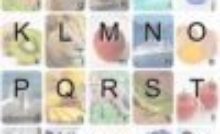Lesson 12. The Complete Guide to Comparative and Superlative Adjectives in English


Comparative and Superlative Adjectives in English


Comparative Adjectives
We use comparative adjectives to compare two objects. It is used to describe an object that has a higher degree of quality than another one. We can form comparative adjectives by ‘attaching the suffix –er to the adjective’ or ‘placing the word more before the adjective’.
Structure: Subject + Verb + Comparative Adjective + than + Object
Examples:
Africa is bigger than Europe.
Carbon monoxide is more dangerous than carbon dioxide.
Prevention is better than cure.
Superlative Adjectives
When we want to describe an object that has more of the particular quality than anything or anyone else of the same type. We can form superlative adjectives by ‘attaching the suffix –est to the adjective’ or ‘placing the word the most before the adjective’.
Structure: Subject + Verb + the + Superlative Adjective + Object
Examples:
Asia is the biggest continent in the world.
Sarin is one of the most dangerous gases.
This is the best birthday gift ever!
Read: The Complete Guide of English Numbers (Up to 10^100)
Regular Comparative and Superlative Adjectives
In general, forming comparative and superlative adjectives depend on the number of the syllable of the adjective.
One-Syllable
For adjectives with one-syllable, we form the comparative and superlative by attaching the suffixes –er and -est, respectively.
| Positive | Comparative | Superlative |
| new | newer | newest |
| cold | colder | coldest |
If the adjective ends: consonant-vowel-consonant, doubled the last consonant.
| Positive | Comparative | Superlative |
| big | bigger | biggest |
| thin | thinner | thinnest |
If the adjective ends with -e, we only add the suffixes -r or -st.
| Positive | Comparative | Superlative |
| Wise | wiser | wisest |
| nice | nicer | nicest |
Two-Syllable
For most of the two-syllable adjectives, including those with ending in -ful, -ed, -less, -ing, we form the comparative with more and superlative with the most.
| Positive | Comparative | Superlative |
| skillful | more skillful | the most skillful |
| crowded | more crowded | the most crowded |
| hopeless | more hopeless | the most hopeless |
| dazzling | more dazzling | the most dazzling |
If the adjective ends with -y, we change the -y into -i, and then add the suffixes -er or -est.
| Positive | Comparative | Superlative |
| happy | happier | the happiest |
| busy | busier | the busiest |
If the adjective ends with -er or -ow¸ attach the suffixes -er for comparatives and -est for superlatives.
| Positive | Comparative | Superlative |
| clever | cleverer | the cleverest |
| narrow | narrower | the narrowest |
A few two-syllable adjectives can form comparatives and superlatives using either -er/-est or more/the most forms. If you are not sure which one to use, you can always check on the dictionary. Using online dictionary will only cost you one minute!
| Positive | Comparative | Superlative |
| gentle | gentler/more gentle | the gentlest/the most gentle |
| simple | simpler/more simple | the simplest/the most simple |
Three or More Syllables
Adjective with three or more syllables always forms the comparative with more and superlative with the most.
| Positive | Comparative | Superlative |
| important | more important | the most important |
| exciting | more exciting | the most exciting |
Irregular Comparative and Superlative Adjectives
Some adjectives have irregular comparative and superlative forms.
| Positive | Comparative | Superlative |
| good | better | the best |
| bad | worse | the worst |
| much/many | more | the most |
| little | less | the least |
| far | farther/further | farthest/furthest |
| old | older/elder | oldest/eldest |
Read: Which One Should You Use? “Good” or “Well”?
Let’s learn English today! Join us at LingoCards!
Recent Posts
How to Say “Could you write it down?” in 50 Different Languages?
When you travel other countries or live abroad, you will communicate with local people and…
How to Say “Of course.” in 50 Different Languages?
"Of course." is a practical phrase in many situations. When people ask you to do…
How to Say “No problem.” in 50 Different Languages?
People may say "Sorry." when they cause problem to you. They may hit you accidentally…
How to Say “I don’t know.” in 50 Different Languages?
When people ask you something and you have no idea for that, you can say…
How to Say “I understand.” in 50 Different Languages?
During traveling abroad, it's often not easy to communicate with people because you don't know…
How to Say “Please.” in 50 Different Languages?
Learning how to say "Please." in local language will be very useful during your trip.…
